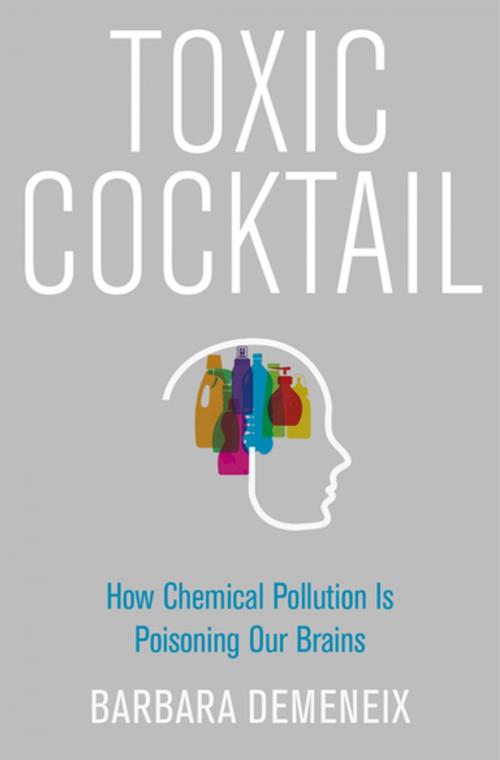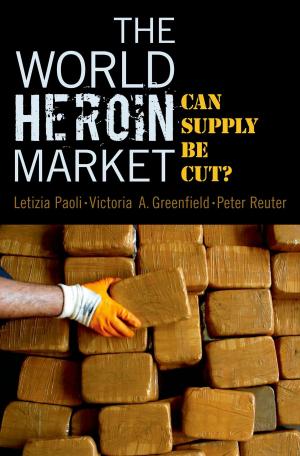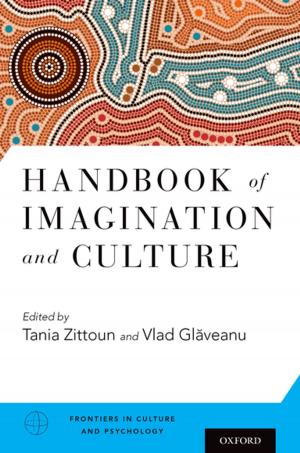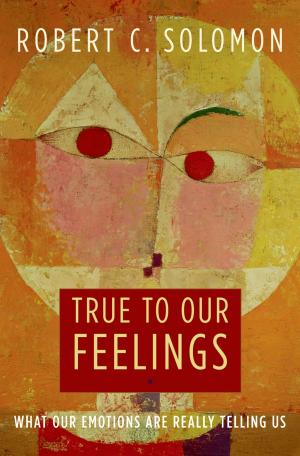Toxic Cocktail
How Chemical Pollution Is Poisoning Our Brains
Nonfiction, Science & Nature, Science, Biological Sciences, Biochemistry, Health & Well Being, Medical, Specialties, Internal Medicine, Neuroscience, Psychology| Author: | Barbara Demeneix | ISBN: | 9780190260958 |
| Publisher: | Oxford University Press | Publication: | January 2, 2017 |
| Imprint: | Oxford University Press | Language: | English |
| Author: | Barbara Demeneix |
| ISBN: | 9780190260958 |
| Publisher: | Oxford University Press |
| Publication: | January 2, 2017 |
| Imprint: | Oxford University Press |
| Language: | English |
In today's world, everyone carries a toxic load of dozens of industrially produced chemicals in their bloodstream. Not only do these adversely affect the health of adults and children, but also, and more worryingly, they damage the development of unborn infants. The amniotic fluid of pregnant women has been found to contain a variety of chemicals, such as pesticides, plasticizers, disinfectant products, flame-retardants, surfactants and UV filters, many of which interfere with fetal physiology, especially thyroid hormone action. Thyroid hormone is vital for brain development, particularly for the fetus during pregnancy and for toddlers. In fact, children born to women who lack this thyroid hormone (or who are unwittingly exposed to thyroid-disrupting chemicals) have lower IQs and more neurodevelopmental problems. Evolution of the human brain has involved multiple changes and processes dependent on thyroid hormone. The urgent question thus arises: Is chemical pollution poisoning brain development and reversing evolution's most outstanding achievement: the human brain? And if so, as this book convincingly illuminates, what can be done about it both collectively and individually? Toxic Cocktail provides a clear view of how many environmental chemicals interfere with brain development. As a result, this book looks at how we define and test IQ, the evidence for IQ loss, and how chemical pollution and thyroid hormone disruption can be actors in this process, as well as increasing neurodevelopmental disease risk.
In today's world, everyone carries a toxic load of dozens of industrially produced chemicals in their bloodstream. Not only do these adversely affect the health of adults and children, but also, and more worryingly, they damage the development of unborn infants. The amniotic fluid of pregnant women has been found to contain a variety of chemicals, such as pesticides, plasticizers, disinfectant products, flame-retardants, surfactants and UV filters, many of which interfere with fetal physiology, especially thyroid hormone action. Thyroid hormone is vital for brain development, particularly for the fetus during pregnancy and for toddlers. In fact, children born to women who lack this thyroid hormone (or who are unwittingly exposed to thyroid-disrupting chemicals) have lower IQs and more neurodevelopmental problems. Evolution of the human brain has involved multiple changes and processes dependent on thyroid hormone. The urgent question thus arises: Is chemical pollution poisoning brain development and reversing evolution's most outstanding achievement: the human brain? And if so, as this book convincingly illuminates, what can be done about it both collectively and individually? Toxic Cocktail provides a clear view of how many environmental chemicals interfere with brain development. As a result, this book looks at how we define and test IQ, the evidence for IQ loss, and how chemical pollution and thyroid hormone disruption can be actors in this process, as well as increasing neurodevelopmental disease risk.















